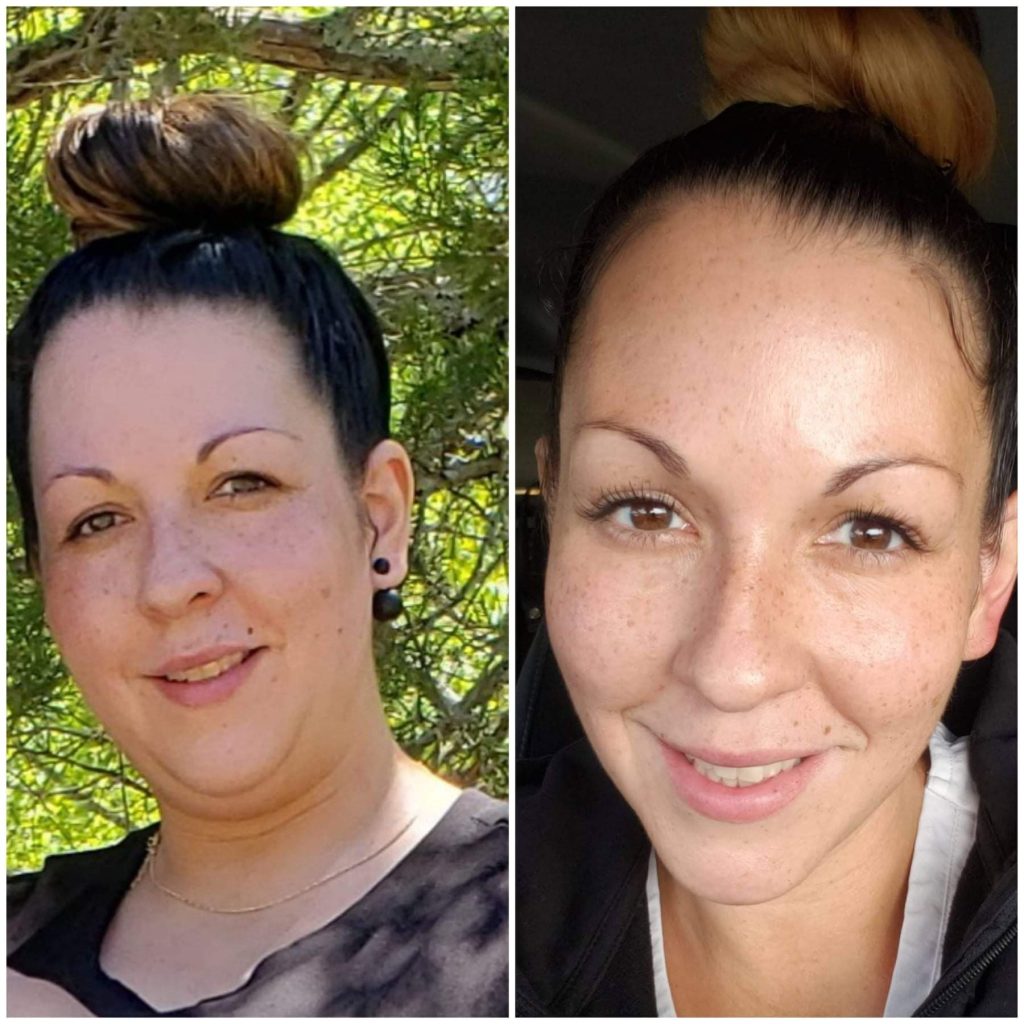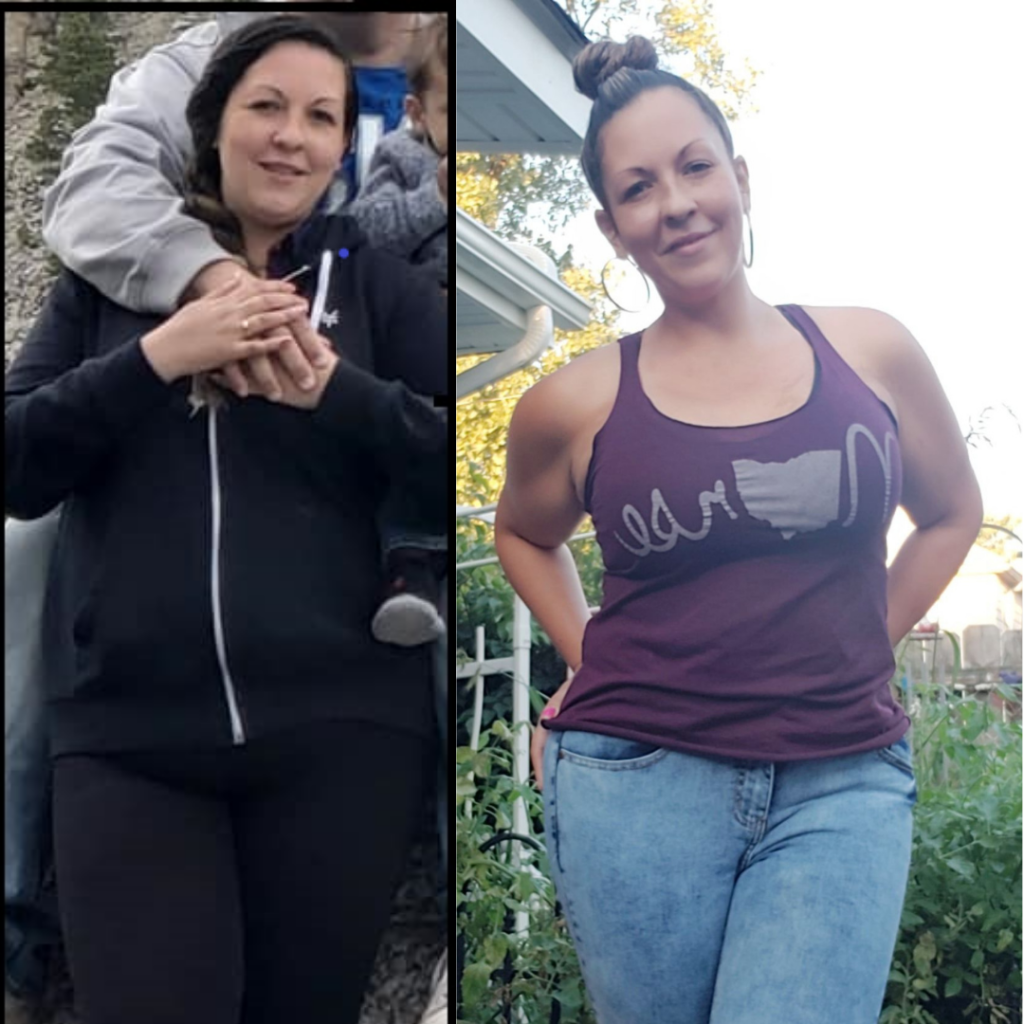I will come right out and say it, there’s been times when someone has offered me something and I’ve said to myself- ‘But I might not be able to stop at 1”. Other times when I’ve had to mentally prepare myself before going to a party- pretty much giving myself a pep talk consisting of don’t eat any carbs, don’t even look at the cake, only eat the veggies, I hope they have a veggie plate. If I was going to a relative’s house, then I knew the pressure would be on, my family would be merciless in offering every delicious carb-filled fried Spanish delight, and if you said no, oh boy, you’d better be ready to answer a firing squad of questions like why not try a little, why don’t you want to try some, is there something wrong with my cooking, and one of the worst- just eat it, you’re not going to stick to your diet anyway.
And, they’d be right about that last one…at least they were right about it for most of my life.
Fast forward to today. I’m now a mom of 3 who’s reclaimed her body, and healed herself mentally and emotionally.

I’d like to share 6 of the ways I’ve used to shut down food pushers for good- things I’ve done personally and lessons I’ve learned from working with other women who have faced similar challenges and are continuing to change their lives.
- REMEMBER THAT CHANGE IS HARD FOR EVERYONE
When the topic of food pushers came up, a client of mine who had lost a lot of weight let me in on her very unique strategy, she told me “I remember that I’m not the only one dealing with change.” She knew that as scared as she was of people pressuring her, many of the people pushing food on her were doing it because they were scared. They didn’t want their friend to change because it meant they might have to change. They didn’t want their friend to turn down deep-fried Oreos because it meant that they might have to reflect on why they needed to eat deep-fried Oreos. So she started realizing that they were more scared of her than she was of them. That change in mindset was enough to take some of the power back and more easily help her say “no” to an extra helping of whatever was being offered.
2. RESPOND WITH VALUES, NOT OUTCOMES
When people push food, a lot of what they say falls into the “one little (fill in the blank) won’t hurt you” category. You can choose to ignore it, but if some people are really really pushy you can respond in an unexpected way that turns the focus of the conversation. If the idea of saying, “but I might not be able to stop at just one” is scary for you, try practicing “I’m doing this for myself.” Or, “I’m practicing willpower.” Or, “No thanks, I’m on my way to being a better me.” Responding with the values you are trying to embody rather than the outcomes you want is a great way not only to shut down a pushy person but serves as a reminder to yourself about what YOUR journey is really about.
3. The Importance of Setting Your Healthy Boundaries Around Food
No matter how insistent the food pusher in your life is, you are the only person who decides what and how much you eat.
You get to draw that line yourself! Maybe one day you decide to have dessert with everyone, but the next week you would prefer to skip dessert. Maybe you plan to have a big fancy breakfast with everyone on Sunday, then the next few days you go back to intermittent fasting.
Everyone has their own definitions of what healthy means to them and everyone has a different way of eating.
Just because it’s right for someone else, doesn’t make it the right decision for you. (I had to tell myself that a LOT during my 75-pound weight loss journey).
If you have been giving in to the food pushers in your life up until now, it’s very likely that the first time you set a boundary, they will be shocked and they might not respond very well.
Don’t give up.
The more often you stick to your boundaries, the more they will know that no means no.
You may choose to offer some kind of explanation, but you don’t owe it to them.
Remember that YOU are the one who ultimately has to deal with the consequences of overeating, not them, so you are the one with the authority to make the decision about what you eat or don’t eat.
4. CHANGE THE FOCUS
If someone says: “I could never give up bread.”
Say this: “It’s an adjustment. But my digestion is better, and I like the way I feel.”
People might indirectly comment on your diet by saying how hard it would be for THEM to give up alcohol, carbs, sugar or however they interpret your diet. The problem with this way of thinking? It reinforces the idea that eating healthfully means depriving yourself of yummy delicious food. So, change the focus and redirect the conversation. Focus on what you GAIN from your food choices. You feel more focused and less bloated because you’re intermittent fasting. You’re sleeping better because you’re not staying out late drinking every night. You’re saving money because your meal prepping instead of eating out every day. That’s a positive change — and it’s a change you’re making for YOU.
5. SAY “I DON’T” INSTEAD OF “I CAN’T”
If someone says: “Just one cookie won’t hurt or try this (fill in the blank)…”
Say this: “I don’t eat gluten, but I appreciate the offer.”
Here’s the possible situation, picture it- You’re cutting back on sugar and gluten. Then, someone offers you a cookie. That’s nice of them, but not part of your diet. You say, “I can’t eat that.”
They push you anyway, saying, “Just a bite won’t hurt.”
What’s wrong with this picture?
You physically can eat the cookie, yes, but you’re choosing not to because it doesn’t fit your health goals.
When you say “I don’t.” It’s more forceful and makes a bigger impact because you’re reinforcing your personal choice and setting a clear boundary. That slight distinction also makes it easier to stick to your decisions and not cave under pressure.
6. REMEMBER WHY YOU STARTED…the deeper why
If they say: “But you don’t need to lose weight or You’re on vacation, who cares!!
Say this: “I feel more energized and productive now that I’m eating better and losing weight.
A Lot of people think that being “on a diet” means you’re trying to lose weight. That’s not necessarily the case. Your diet is the food that you habitually eat. You might change your diet because you’re trying to lower your BP or you’re intermittent fasting because it might help you reduce your risk of cancer, you’re eating more balanced meals and fewer processed foods because you want more energy or maybe you want to reduce your sodium intake because of heart problems, you’re packing your lunch because you’re tightening up your budget and saving money… There are tons of great reasons to eat more healthful and nourishing meals, and they’re all great responses when people ask about your diet.

Big change starts with small steps. To create healthy habits, make simple, sustainable swaps and stick to them. That’s it. There’s no magic pill or secret formula. Whether you’re adding collagen powder to your coffee, taking a multivitamin, committing to a daily walk, journaling your thoughts, or eating more vegetables, YOU’RE taking control of your health and wellness.
Connect with me here to discover more ways to add SPICE to your life https://linktr.ee/Florecitas23


